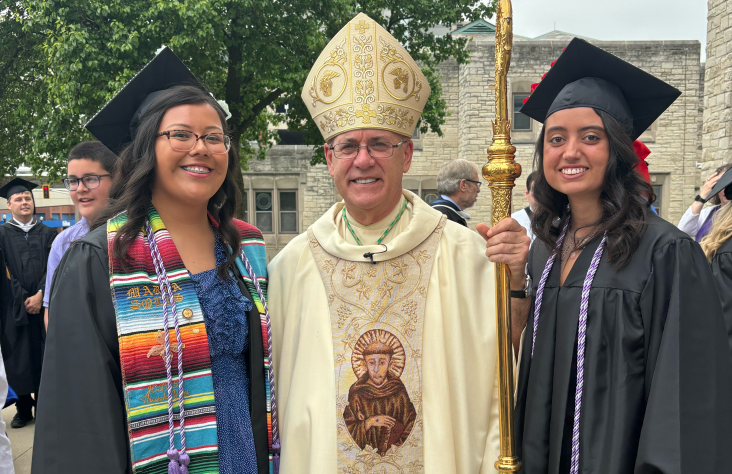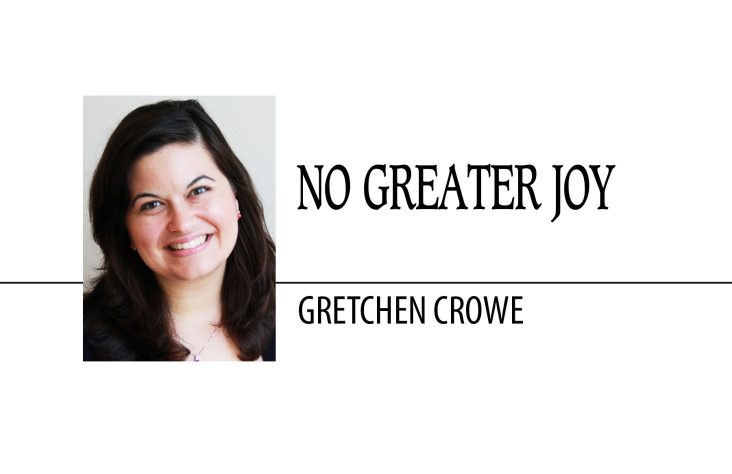September 16, 2015 // Uncategorized
Appeals court rules against additional diocesan groups’ mandate objections
CHICAGO (CNS) — Several additional Catholic entities in Indiana were among those told by the 7th U.S. Circuit Court of Appeals Sept. 4 that there is not a substantial burden to their religious rights in the process they must follow to avoid having to pay for contraceptive coverage in employee health insurance.
The 7th Circuit had ruled last December in a case involving the University of Notre Dame that a process known as an accommodation for avoiding the mandate does not substantially burden the Catholic institution’s religious rights.
The latest ruling reiterates many of the same points in finding that a different set of plaintiffs similarly should not be protected from requirements established by the Department of Health and Human Services for avoiding the contraceptive mandate because of religious objections. The plaintiffs in the newest ruling include entities within the Diocese of Fort Wayne-South Bend, including Catholic Charities; Saint Anne Home and Retirement Community; the Franciscan Alliance, which is an Indiana health care system; the University of Saint Francis; and Our Sunday Visitor, a Catholic publishing company; as well as Biola University, a California Christian school, and Grace College and Seminary in Indiana (Biola and Grace filed suit together in Indiana); and Specialty Physicians of Illinois.
“We conclude that the (Affordable Care Act) does not impose a substantial burden on the plaintiffs’ free exercise rights,” the court said in a 2-1 ruling. It continued for 60 days a stay on the enforcement of the requirement, to give time for a lower federal court to consider related issues. Failure to comply with the requirement to offer contraceptive coverage or follow the procedures of the accommodation are subject to penalty of substantial fines.
The 7th Circuit is among seven federal appeals court to rule against nonprofit religious organizations that argued that the contraceptive mandate and the opt-out system violate their religious rights. No appeals courts have ruled otherwise.
Several of the religious institutions in the cases have filed appeals with the Supreme Court. The court will not announce additional cases for its next docket until shortly before the term begins Oct. 5.
All of the circuit court decisions have come since the Supreme Court’s June 2014 ruling that the owners of the Hobby Lobby craft store chain and similarly situated, closely held, for-profit companies are entitled to be exempt from the contraceptive requirement. The appeals courts ruled in light of the Hobby Lobby decision, finding that unlike the for-profit organizations, the nonprofits had a viable alternative in what HHS calls an accommodation for them and that it does not infringe on their religious rights.
Under the Affordable Care Act, religious institutions such as dioceses and churches that object on moral grounds to the use of contraceptives are exempt from the requirement to provide insurance coverage for them.
The religious nonprofit organizations in the cases do not meet the HHS requirements for an exemption, which requires that the institutions be primarily involved in inculcating the faith and primarily serve and employ people of the same faith.
Under the accommodation, nonexempt organizations can file a form with HHS or send a letter to the agency simply saying they will not provide the coverage. At that point, a third-part system kicks in for providing employees with contraceptive insurance, with no cost or further involvement to the religious employers.
The best news. Delivered to your inbox.
Subscribe to our mailing list today.





